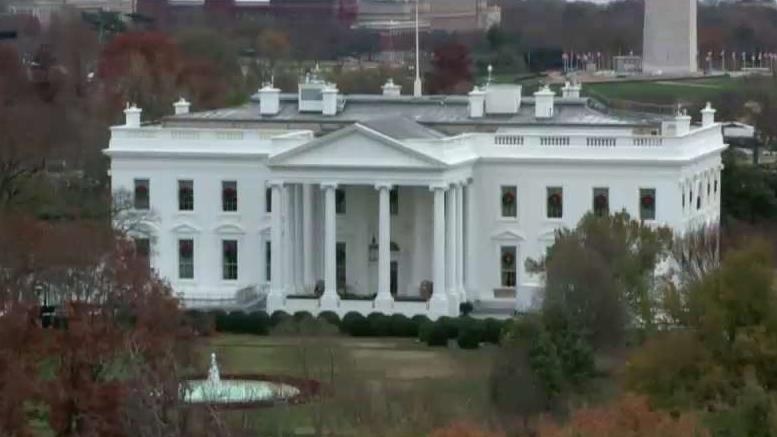Government report: Climate change negatively impacting US
The latest National Climate Assessment concludes that without ‘substantial and sustained global mitigation,’ climate change will cause ‘growing losses to American infrastructure and property’ and impede the ‘rate of economic growth’; Ellison Barber reports.
Carbon dioxide emissions across the world made their largest jump in the past year, rising an estimated 2.7 percent, according to three studies released Wednesday.
The studies, released by the Global Carbon Project, found that this year the world would spew 40.9 billion tons of carbon dioxide, up from 39.8 billion last year — with the margin of error at about one percentage point on either side.
TERRIFYING CLIMATE CHANGE WARNING: 12 YEARS UNTIL WE'RE DOOMED
The research conducted by the project, which is an international scientific collaboration of academics, governments and industry that tracks greenhouse gas emissions, puts some of the goals of the Paris Agreement on climate change almost out of reach, according to scientists.
Federal climate change report warns of economic impacts
"This is terrible news," Andrew Jones, co-director of Climate Interactive, which models greenhouse gas emissions and temperatures, told The Associated Press. "Every year that we delay serious climate action, the Paris goals become more difficult to meet."
The Paris accord set two goals. The long-held goal would limit global warming to no more than 1.8 degrees from existing levels, with a more ambitious goal of limiting warming to 0.9 degrees from now.
The Global Carbon Project uses government and industry reports to come up with final emission figures for 2017 and projections for 2018 based on the four biggest polluters: China, the United States, India and the European Union.
The U.S., which had been steadily decreasing its carbon pollution, showed a significant rise in emissions — up 2.5 percent — for the first time since 2013. China, the globe's biggest carbon emitter, saw its largest increase since 2011: 4.6 percent.
'COLLAPE OF CIVILIZATION' PREDICTED AT UN CLIMATE SUMMIT
The increase is a "reality check," according to the lead author on the study, Corinne Le Quere. She said she doesn't think the world will return to the even larger increases seen from 2003 to 2008, and noted she thinks unusual factors are at play this year.
Harrison Ford gives impassioned speech about climate change
For the U.S., it was a combination of a hot summer and cold winter that required more electricity use for heating and cooling. For China, it was an economic stimulus that pushed coal-powered manufacturing, Le Quere said.
John Reilly, co-director of MIT's Joint Program on the Science and Policy of Global Change, said the results aren't too surprising because fossil fuels still account for 81 percent of the world's energy use. The burning of coal, oil and gas release carbon dioxide, which warms the Earth. Reilly, who wasn't part of the study, praised it as impressive.
Global carbon dioxide emissions have increased 55 percent in the last 20 years, the calculations show. At the same time, Earth has warmed on average about two-thirds of a degree, according to the U.S. National Oceanic and Atmospheric Administration.
The Associated Press contributed to this report.
Source: Read Full Article


